#DonaldTrump
You Not Having a Car With 'Superpowers' is Somehow Donald Trump's Fault
Supposedly, everyone eagerly anticipates the day they can own a shiny-new self-driving car, but automakers, regulatory agencies, consumer advocates, Silicon Valley, and the White House are debating how exactly that’s supposed to happen. They haven’t reached a consensus yet — and that’s probably not likely to change anytime soon.
Most autonomous cars rely on array of cameras, LIDAR, GPS, inertial measurement devices, and complex control systems used to interpret sensory information before reacting accordingly. Vehicle-to-vehicle communication systems (V2V) are regarded by many as essential components to establishing fully automated travel. The theory is that, by allowing cars to communicate directly on a broadband frequency, they can better predict each other’s movements.
However, a recent Bloomberg article accuses the technology of “going nowhere fast,” citing the Trump administration as the chief culprit, and alluding to the direct stifling of technology that would give cars “superpowers” in the next few years.
I probably won’t have the opportunity to say this often — and it feels kind of strange to say it now — but these accusations aren’t entirely fair to the president or his administration.
NHTSA's Updated Autonomous Safety Guidance Doesn't Actually Offer Any
On Tuesday, Transportation Secretary Elaine Chao outlined the Trump administration’s “Vision for Safety 2.0” at the University of Michigan’s Transportation Research Institute in Ann Arbor. The document is a collection of non-binding requests to manufacturers and a promise that they can go hog-wild with their autonomous vehicle testing, at least as far as the feds are concerned.
In a deluge of policy updates, the National Highway Traffic Safety Administration tweaked its vision for safety, claiming it was responding to the recent increase in the number of road accidents.
While Obama-era guidelines weren’t particularly robust, the Trump administration has essentially built a technical-sounding framework aimed at destroying regulatory red tape. Ironically, the government seems to have gone out of its way to ensure it stays out of the way. In some respects, it has to. The speed of development is beginning to happen at a rate where any outside bureaucracy would have difficulty keeping pace. Chao said the guidance would remain flexible, ready to adapt to the changes as they come. But it is also without teeth, promoting development and the future promise for safety at the expense of any meaningful oversight.
Did the Department of Transportation and NHTSA sell themselves out to industry or do they actually think giving automakers carte blanche on autonomous testing was the best thing for public safety?
Gas Fight! States Suing Trump Administration Over Stalled Fuel Economy Fines
A handful of states have banded together to sue the Trump Administration for delaying financial penalties associated with automakers’ inability to meet minimum fuel economy standards. As part of the president’s deregulation proposals, the National Highway Traffic Safety Administration has placed Obama-era mandates on review as regulators debate whether to grant automakers significant reductions in fuel economy requirements.
However, those changes have yet to arrive, meaning the industry is still under pre-existing standards — and some states want automakers held accountable. California, New York, Vermont, Maryland, and Pennsylvania want the current administration to introduce its proposed quotas or enforce the already established 2016 limits.
American Automotive Groups Are Formally Siding Against U.S. NAFTA Proposals
When Donald Trump took office, one of his first presidential acts was to rally domestic automakers for a series of meetings and promise to remove regulatory barriers. As the administration was a self-described ally to the car industry, the claim appeared genuine. There was some tough talk about foreign involvement but, for the most part, Trump appeared to be in domestic manufacturers’ corner.
As focus shifted toward the renegotiation of the North American Free Trade Agreement, automakers had one request: to not impede cross-border trade. It was their primary concern leading up to this week’s talks.
Two days later and the issue has become a major sticking point; placing auto industry groups from Canada, Mexico, and the United States at odds with the current administration. As NAFTA talks began in Washington, D.C., automaker and parts groups from all three countries began outright pleading with U.S. negotiators to abandon their push for tighter rules of origin. Now they are formally opposing it.
Trump Changes Regulatory Rules on Infrastructure, U.S. Waiting on Trillion Dollar Roadworks Plan
President Trump announced on Tuesday that he had signed an executive order to eliminate and streamline Obama-era regulations that might hinder the construction of U.S. roads and bridges. Absent, however, was any legislation regarding previous promises of allocating a trillion dollars revitalize the nation’s infrastructure.
While the press conference was mired by the weekend’s violence in Charlottesville, the topic eventually returned to roadworks and the aforementioned funding. “We will end up getting health care, but we’ll get the infrastructure, and actually infrastructure is something that I think we’ll have bipartisan support on,” Trump told reporters. “I actually think Democrats will go along with the infrastructure.”
Backed by Transportation Secretary Elaine L. Chao and Treasury Secretary Steven Mnuchin, Trump presented the media with a flow chart purporting to show the permitting regulations required to construct a highway in an unnamed state he claimed took 17 years under existing regulations.
NAFTA Trading Partners Agree: It's Time for a Change
Mexico and Canada are finally in agreement that NAFTA could use an update, not that the Trump administration gave them much of an opportunity to refuse renegotiations. However, after taking a critical look at the two-decade old agreement, representatives from all three nations have reached the consensus that it’s time for a change.
At Wednesday’s CAR Management Briefing Seminars, Colin Bird, minister-counselor for trade and economic policy at the Canadian Embassy, and Francisco Sandoval-Saqui, a Mexican trade official for his country’s Ministry of the Economy, laid out their country’s agendas for the NAFTA trade talks slated to begin in Washington, DC on August 16th.
Both countries are eager to make cross-border trade more fluid without handing an unfair advantage over to the United States. President Trump has previously accused NAFTA of being “the worst trade deal maybe ever signed anywhere, but certainly ever signed in this country,” and immediately moved to dismantle it upon taking office. While his stance has softened over the last few months and the reins have been handed over to Robert Lighthizer, Trump has remained bullish on the issue — claiming domestic automakers are giving away U.S. jobs and income to Canada and Mexico.
U.S. Seeking a Trade Deficit Reduction in Early NAFTA Talks and Not Much Else
Despite President Trump having initially framed his proposed NAFTA renegotiations as a hardline “America First” endeavor, the administration’s stance has soften significantly. In a recent summary of objectives, U.S. Trade Representative Robert Lighthizer highlighted fairness as the key issue throughout.
Absent were any mention of abandoning the deal if certain conditions were not met and the steep tariffs previously alluded to by the president. In fact, any mention of tariffs specifically targeted their reduction or elimination — for both imported and exported goods. There are, however, numerous examples that reaffirm the Trump administration’s earlier objectives and a handful of inclusions that should please domestic automakers.
Trump Administration Re-examining Penalties for Fuel Economy Flubs
Automakers’ ability to adhere to the regulatory standards set by the U.S. government are beginning to slip. Manufacturers predicted industry-wide economy inadequacies for 2016 model year vehicles, anticipating things would only worsen for 2017. The Trump administration has framed itself as a friend to automotive companies, with the president himself claiming he would remove regulatory hurdles while in office. Corporate economy guidelines established under President Obama are already under review, but now so are the penalties companies would have to pay for not meeting them.
In a regulatory filing on Friday, the National Highway Traffic Safety Administration said it would be seeking public comment on how to revise plans, slated to go into effect from the 2019 model year, which would more than double the penalties on auto manufacturers that fall short of meeting the government-set economy targets.
Two-thirds of Post-recession Manufacturing Jobs Were a Result of Foreign Investment, Says Study
As the Trump administration applies pressure to encourage companies to manufacture goods within U.S. borders and bolster American employment (or potentially face towering tariffs), the president has more recently come out against foreign automakers directly. In late May, Trump responded to criticism from German Chancellor Angela Merkel by accusing her country of having a trade surplus with the United States — claiming its automakers send vehicles to North America while providing little else. Trump has levelled similar criticism at China.
However, there’s a problem with his assertion. Foreign companies may not always contribute the majority of their wealth towards improving the U.S. economy, but they do invest heavily into the country. In fact, a recent analysis of federal jobs data shows two-thirds of the 656,000 manufacturing jobs created between 2010 and 2014 can be attributed directly to foreign investment.
Accurate employment figures for the following years aren’t yet available. But, with an additional $700 billion in capital coming in from non-domestic sources, total foreign investment reached $3.7 trillion by the end of 2016 — a new record.
NHTSA Poised for Potential Deregulation Bonanza on Automotive Safety Aids
We knew the Trump administration wanted to deregulate the automotive industry in order to free it from any production hangups, be it imagined or genuine. However, some of the items under consideration for potential elimination are safety features that seem silly to go without. At the top of that list is the requirement that all electrically driven vehicles must emit noise to alert pedestrians to their presence.
However, this isn’t the only safety feature at risk of becoming an optional extra. In budget documents provided to Congress, the National Highway Traffic Safety Administration specified it is considering six separate areas for deregulation. Those include the modern standard for rear-view mirrors and backup cameras in passenger cars, mandatory electronic stability-control units for heavy trucks, and a rule allowing car dealers to install switches to deactivate airbags in customer vehicles.
While some of the rules could be abolished entirely, others are more likely to undergo some gentle retooling to provide automakers greater flexibility. Automakers have long pressed for the revamp of some antiquated, NHTSA-administered safety standards in order to permit the introduction of newer technologies. Still, eliminating any safety mandate is likely to raise the ire of consumer safety advocates, whether the end goal is well-intentioned or not.
No Deadline for NAFTA Talks Despite Industry Plea for a Quick Turnaround
U.S. Trade Representative Robert Lighthizer said on Wednesday there was no definitive timeline for completing NAFTA trade renegotiations. Discussions haven’t even begun between the United States, Canada, and Mexico but legislators and executives have already warned prolonged negotiations would likely be detrimental to their interests.
The automotive industry is mainly seeking a swift and unambiguous update that doesn’t rock the boat too severely. Every day there is no consensus on the trade agreement is another day it has to postpone large investments. Ideally, the U.S. wants the redrawn NAFTA to prioritize its workforce and industry, while the Trump administration aims to tax imports and force companies to do more business within its borders. But, with nothing finalized, many automakers are in a holding pattern. Volkswagen, for example, is putting off decisions on major U.S. investments until it becomes clearer what course NAFTA will take.
Even Automakers Disagree With Trump's Choice to Abandon the Paris Accord
On Thursday, President Trump made the decision to ditch the Paris climate accord and the entire internet seemingly spent the next twelve hours calling it a misstep. Either the president possesses a hidden wisdom on the subject that nobody else can seem to fathom, or he has severely misjudged the public’s position on environmental issues. Calling the accord “unfair at the highest level to the United States,” Trump suggested the deal was detrimental to the country’s manufacturing efforts and gave other nations a financial advantage.
However, the instant feedback from the automotive industry did not appear to share his viewpoint. With nearly 200 other countries still adhering to the nonbinding Paris agreement, it’s almost as if Trump had forgotten car companies operate on a global stage. Both General Motors and Ford Motor Company issued statements in opposition to Trump’s decision.
“We believe climate change is real, and remain deeply committed to reducing greenhouse gas emissions in our vehicles and our facilities,” announced Ford. “Our commitment to sustainability is why we’re investing so heavily in electrification and adding 13 new electrified vehicles to our lineup.”
President Trump Planning to Abandon Paris Climate Accord: Reports
President Donald Trump has said he’ll be providing his thoughts on the Paris climate deal in the coming days, but media outlets are already suggesting his take on the issue will be to leave it. Sources are claiming the president’s mind is made up and, to the surprise of no one, odds are good he will withdraw the U.S. from the deal.
Trump has already made it his mission to overturn as many Obama-related policies as possible and seems unconcerned with environmental issues that might stand in the way of potential manufacturing opportunities. Since taking office, Trump has been pushing regulators to rethink the United States’ auto emission guidelines, undoing one of the previous administration’s final acts in office.
Pulling out of the Paris accord would fulfill a campaign promise and negate the need for the U.S. to adhere to rigid emission standards — at the expense of further alienating the president from Europe’s leadership.
U.S. Plans to Schedule Opening NAFTA Talks in Roughly 90 Days
U.S. Commerce Secretary Wilbur Ross want to begin formal talks to renegotiate the North American Free Trade Agreement with Canada and Mexico in a little over three months, adhering to the campaign pledges made by President Donald Trump last year. Ross explained to reporters that “sometime in the next couple of weeks” he will issue a notice to Congress stating the Trump administration intends to start formal NAFTA negotiations in just 90 days.
However, since he expressed his intentions in front of a gaggle of reporters, Congress is probably already aware. But it won’t be “official” until they get a piece of paper signed by the appropriate parties on the applicable letterhead — hopefully, embossed with a fierce-looking eagle surrounded by dollar signs.
Lighthizer Confirmed as U.S. Trade Representative After Waiver Approval
I hope you’re fond of domestic automobiles.
The Trump administration is setting the table to make importing cars more difficult with the U.S. Senate confirming Robert Lighthizer in an 82-14 vote as the U.S. trade representative, prepping the country for an assertive trust from the White House’s America First trade strategy.



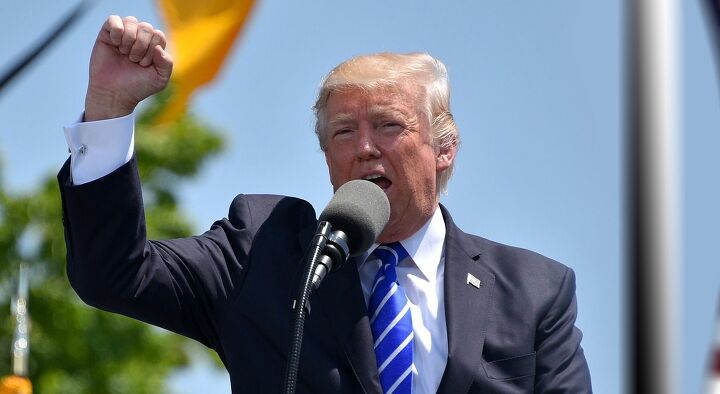
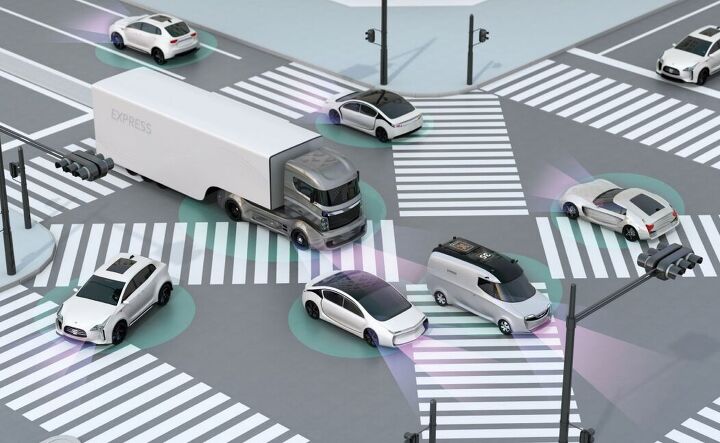
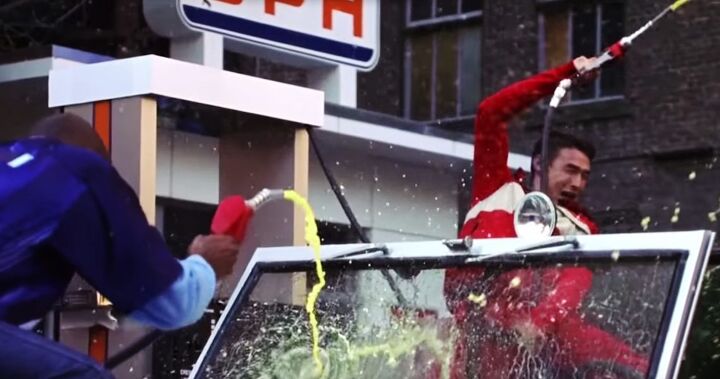


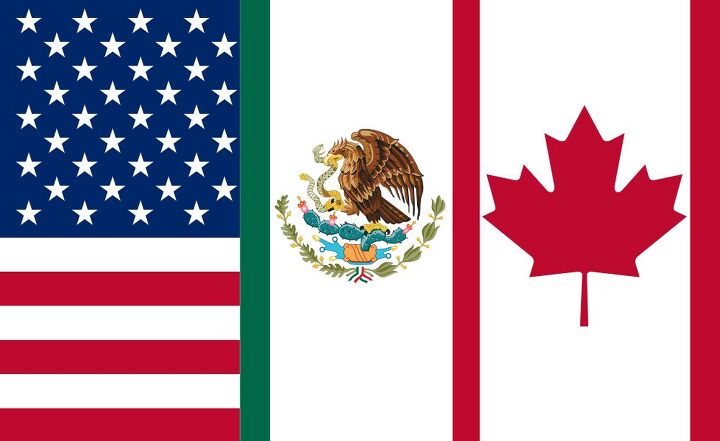

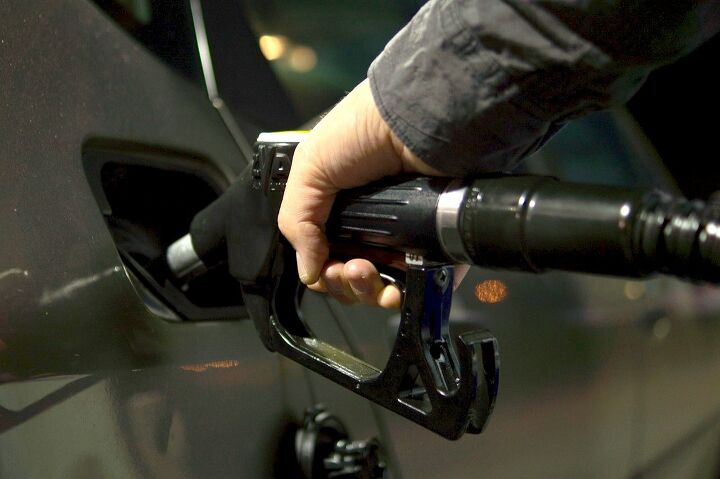

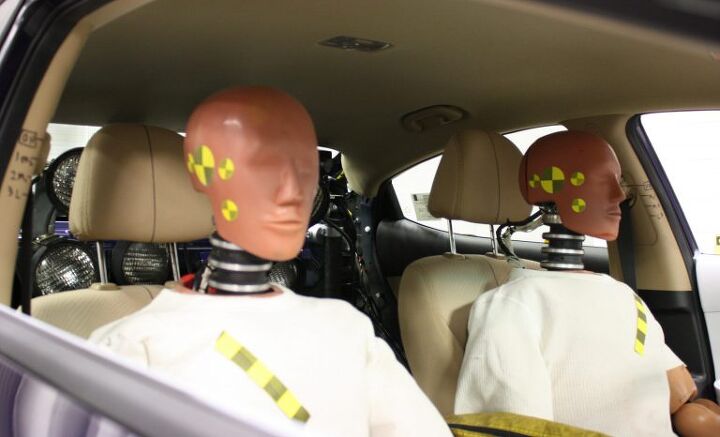


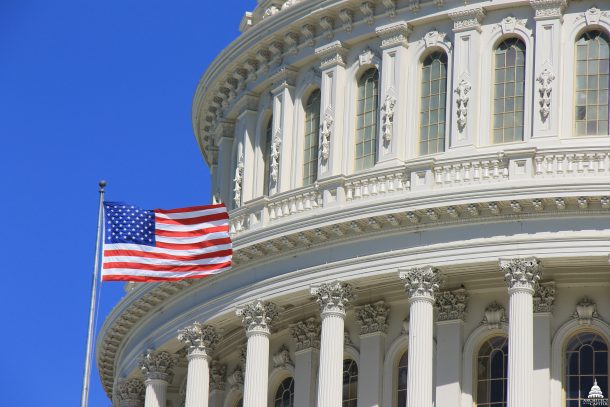













Recent Comments